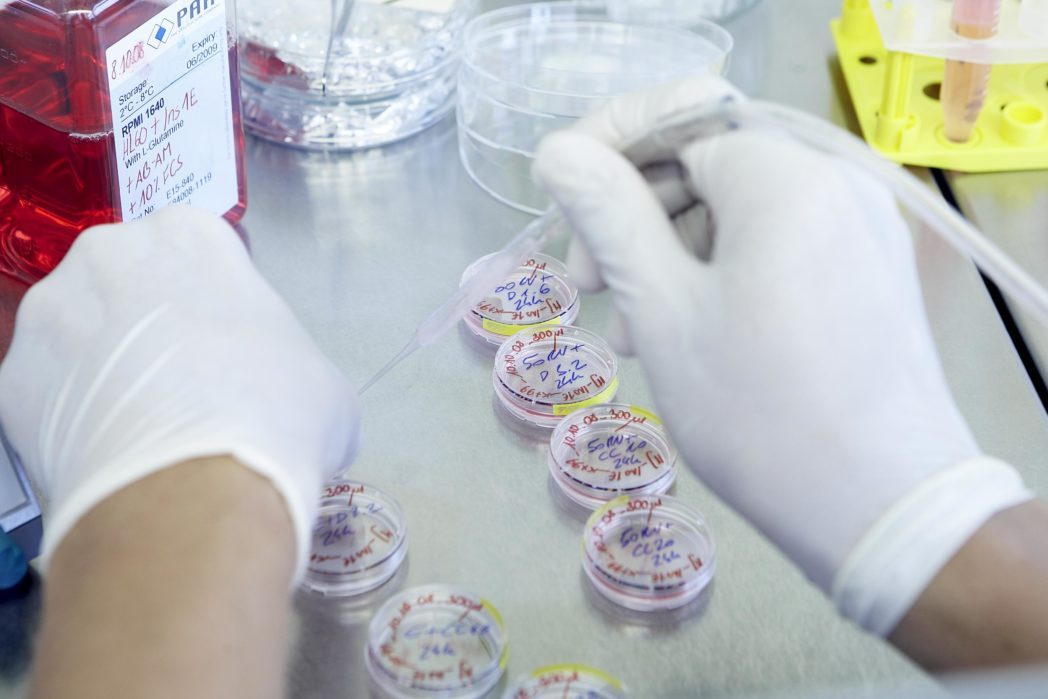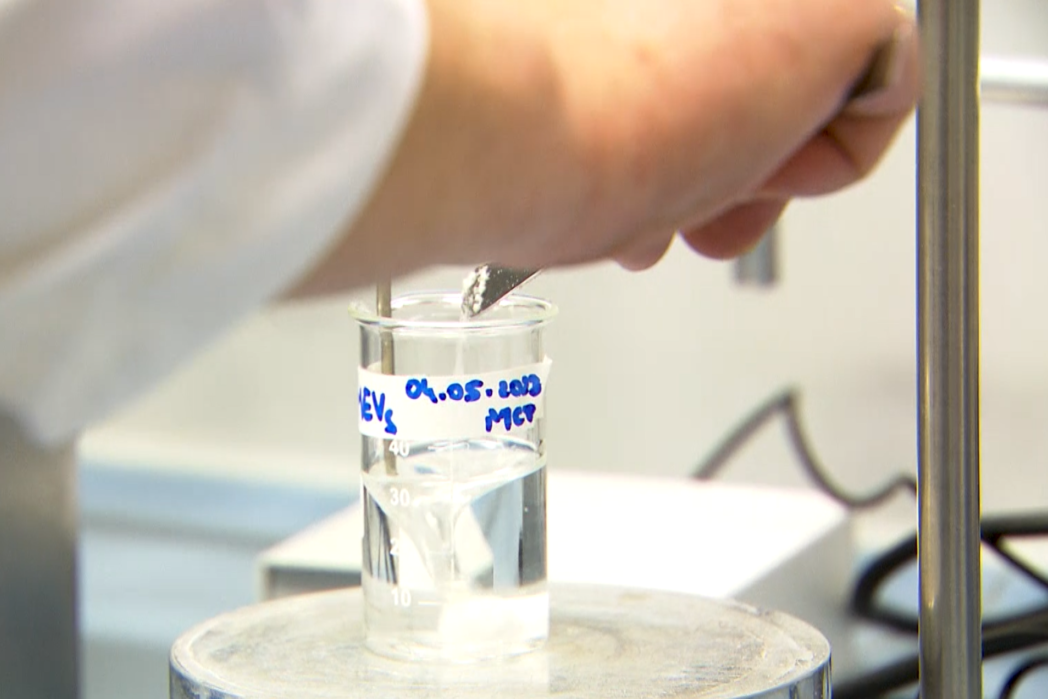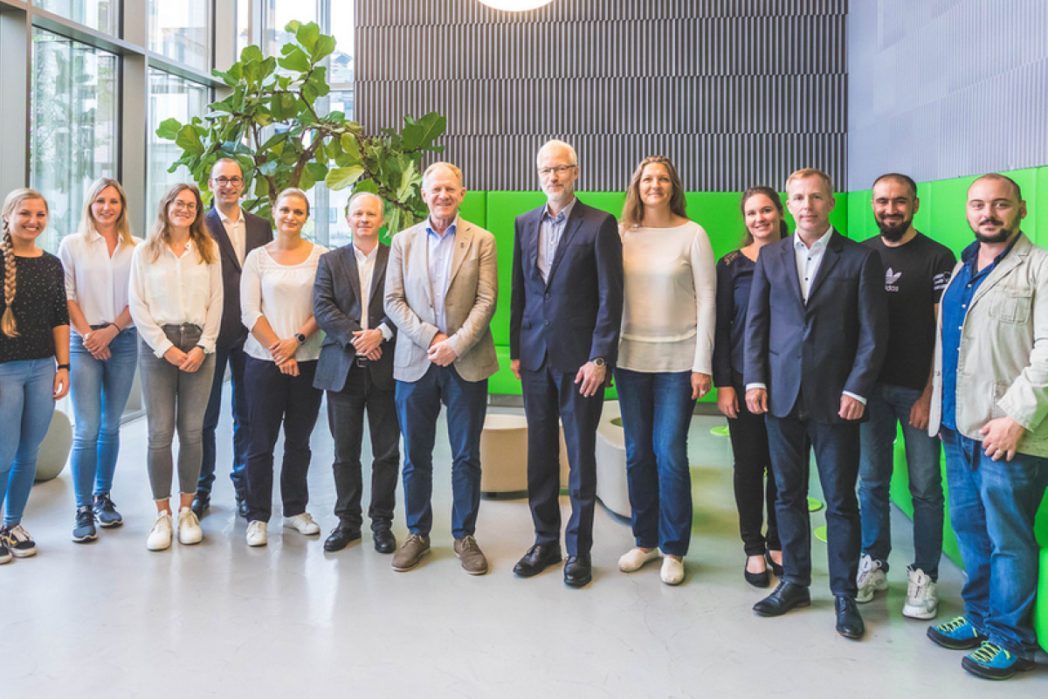
At the Salzburg location, there is comprehensive life sciences expertise through the University of Salzburg, the Paracelsus Medical University (PMU), and the Salzburg University Hospital (SALK), complemented by the Department of Health Sciences at the Salzburg University of Applied Sciences. Together, they form the central knowledge and education hub for life sciences.
One of Salzburg’s fields of excellence is cancer research and immunology, represented among others by the Cancer Cluster Salzburg (a cooperation between various research institutions). Its goal is to deliver top-level clinical cancer therapy and research at one of Austria’s two largest oncology centers, to further expand research, and to closely link teaching and training. Another area of excellence is neuroscience, where a long-established, high-level collaboration exists between the major research institutions—University of Salzburg, PMU, and SALK. Research focuses include epilepsy, chronic disorders of consciousness, depression, and anxiety. Salzburg’s research is also internationally recognized in the field of regenerative medicine, especially in cell therapy and wound healing, including the treatment of epidermolysis bullosa, the so-called “butterfly disease.”
The fields of rehabilitation, prevention, nursing, and health sciences are already well established in Salzburg and hold great potential for future development. Collaborations between various (non-)university research institutions are not only generating forward-looking projects but also creating new and innovative educational formats for nursing professions.
A cross-cutting or core competence topic is digital medicine or digital health, which is being researched at several Salzburg institutions. One example is the Ludwig Boltzmann Institute for Digital Health and Prevention (LBI-DHP), whose goal is to support cardiovascular patients in changing their lifestyles through digital technologies.
Supporting institutions
Clinical Research Center Salzburg (CRCS)
From connecting study personnel and experts to contract management and invoicing—both industry clients and academic researchers who wish to conduct a clinical study in Salzburg receive comprehensive, end-to-end support here. This also includes training of study personnel and workshops for clinical researchers.
GMP Laboratory (Small New World Laboratories GmbH)
Here, too, EV (extracellular vesicle) technology is used to address the current shortcomings of stem cell therapies in terms of personalization, dosage, and unexpected side effects. Small New World Laboratories produces biopharmaceuticals from human cells to improve and accelerate the body’s healing processes by suppressing inflammatory immune responses and fibrosis.
EB House Austria
This center of expertise for Epidermolysis Bullosa (EB)—also known as the “Butterfly Children” disease—and specialized clinic is a project of DEBRA Austria, located on the premises of Salzburg University Hospital. It combines an outpatient clinic with a research unit, a clinical study center, and an academy. As such, it serves as a flagship model for the professional care of patients with rare (skin) diseases.
Ludwig Boltzmann Institute for Nanovesicular Precision Medicine
Founded in early 2024, this is already the second Ludwig Boltzmann Institute in Salzburg. Its focus lies on extracellular vesicles (EVs), a natural cellular transport system that delivers molecules precisely to where they are needed in the body. The institute not only studies the transport mechanisms and capabilities of EVs, but also, in collaboration with PMU, explores potential clinical applications and ways to involve patients in the research process.
1. September 2022
Research and Transfer Centers in Salzburg
Salzburg has a strong research landscape with six universities and universities of applied sciences, as well as numerous non-university research institutions. The WISS2030 initiative further strengthens research structures in Salzburg.
30. June 2022
Salzburg’s Top Research Presented Itself in Vienna
Salzburg’s research landscape is impressive! To showcase flagship projects from the WISS, the Science and Research Strategy of the State of Salzburg, in the fields of Cybersecurity, Life Sciences, Circular Economy, and Startup Salzburg, Innovation Salzburg organized the WISS Roadshow on Wednesday, June 29th, at the House of Engineers in Vienna.
24. June 2022
START-Prize of over one million euros for young researcher
The bioscientist Elfriede Dall from the University of Salzburg has been awarded the START Prize, Austria’s most highly endowed and recognised science prize for young researchers. Over the next six years, the prize winner will have 1.2 million euros at her disposal for her research on the cell protein legumain.
8. November 2021
Philip Levine Research Award for Salzburg team
Eva Rohde and her team at Paracelsus Medical University are being awarded the Philip Levine Prize by the German Society for Transfusion Medicine and Immunohematology for their outstanding scientific work.
19. July 2021
Using digital tools to improve sleep
Digital help for people with sleep problems: A virtual sleep lab will offer digital sleep analysis as well as coaching for optimizing sleep hygiene and sleep environment.
8. June 2021
How to promote better integration of cochlear implants
Tiny particles released by human stem cells are called extracellular vesicles. The world’s first administration of therapeutics based on vesicles took place in Salzburg. This allows, among other things, hearing implants to heal better. The research team led by Mario Gimona and Eva Rohde discovered that vesicles can do much more than previously thought.


